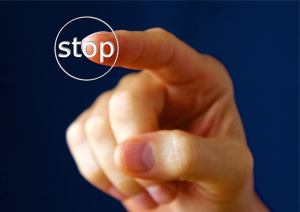1. Your Obligations
What to do?
- If you know or suspect that a young person has been sexually abused you should inform your management and police and relevant child protection authorities.
You are responsible to make yourself aware of the policy to prevent and handle sexual abuse at your workplace.
The degree of knowledge
The degree of concern, suspicion and knowledge will have an impact on how one should act. Is this a concern?
Meeting with a Young Person
What can make young people talk about abuse?
Precisely because it can be difficult for young people to tell about sexual abuse, it is important that professionals are aware of conditions that may promote and support them. A Norwegian study that looks at the revelation of sexual abuse from the children's perspective shows, among other things, that children and young people are more likely to tell if they experience that there is an opportunity to tell, an intention to tell and a connection to what is being talked about. The likelihood of the child reporting abuse is greater if all three aspects are present.
Supportive NGOs or Public Offices
| Childline
Children and young people can contact ChildLine about anything – no problem is too big or too small. Whatever your worry it’s better out than in. |
| NSPCC
24 -hour child protection helpline with information and advice for anyone worried about a child’s physical and emotional safety. |
| Respond
Helps children and adults with learning disabilities who have experienced abuse or trauma, as well as those who have abused others, through psychotherapy, advocacy and other support. |
| MOSAC
Support, counselling and advocacy for non-abusing parents/carers of children who have been sexually abused. |
| Young Minds
Advice for parents concerned about their child’s emotional and mental health. |
| London Rape Crisis
Support and services for women and girls, and information about support agencies for men. |
| Survivors UK
Information, support and counselling for men and boys who have been raped or sexually abused. |
| Women and Girls’ Network
Counselling and support to help women and girls recover from violence. |
| Galop
Advice, support and advocacy for lesbian, gay, bisexual and trans* (LGBT) people. |
| National Domestic Violence helpline
Women experiencing domestic violence – as well as their family, friends, colleagues and others calling on their behalf – can contact this nationwide helpline 24/7 for help and advice. |
| Men’s Advice Line
Advice and support for men experiencing domestic violence and abuse. |
| Papyrus
Support and advice for parents about young people under the age of 35 and suicide. |
| British Association for Counselling and Psychotherapy (BACP)
Details of counsellors and therapists working in London and elsewhere in the UK. |
| Crown Prosecution Service (CPS)
Explains what the CPS does and what happens, from reporting a crime to passing sentence. |
| Rights of Women
Free confidential legal advice for women in London and their advisers. |
